Faculty of Biomedical Sciences and Postgraduate Training
The Faculty of Biomedical Sciences and Postgraduate Training was created under a resolution of the Senate of the Medical University of Lodz in January 2004.
The faculty is an interdisciplinary unit of the Medical University of Lodz and conducts didactic, clinical and scientific activity in medical and basic sciences.
The Faculty of Biomedical Sciences and Postgraduate Training is authorized to confer the degrees of doctor and habilitated doctors in the field of Medical Sciences in Medicine. Scientific and didactic units of the Faculty of Biomedical Sciences and Postgraduate Training are engaged in diverse scientific activity within basic sciences, clinical and experimental medicine.
FIELDS OF STUDIES
In the academic year 2007/2008 we opened first-cycle (Bachelor’s) studies in the field of Biotechnology, speciality Medical Biotechnology and Electroradiology.
In 2010, we opened second-cycle (Master’s) studies, speciality Medical Biotechnology, which are conducted in English.
Since the academic year 2015/2016 Electroradiology has been a separate field of study at first-cycle studies.
Biotechnology
Speciality: Medical Biotechnology
First-cycle studies comprise 6 semesters, whereas second-cycle studies last 4 semesters.
Medical Biotechnology students acquire knowledge which is necessary to be able to deal with molecular medicine, modern methods of experimental biology and technology as well as perform interdisciplinary tasks within cooperation with experts in related fields. Graduates in Medical Biotechnology are prepared to work in scientific and research institutes, in pharmaceutical and biotechnological industries, as well as in related industries where they invent and implement diagnostic and therapeutic systems. It is important for students to acquire skills which will help them in their future professional career to support medical doctors in making diagnoses and initiating therapeutic procedures and also to work in research laboratories which deal with advanced methods comprising two sciences: Medicine and Experimental Biology.
Biotechnological studies are interdisciplinary studies which combine natural and medical sciences.
The main teaching trend includes medical applications of biotechnology in creating new diagnostic techniques and new therapeutic technologies.
Throughout the course, students spend a great deal of time studying in laboratories.
Electroradiology
Electroradiology comprises elements of medical sciences, health sciences and physical education sciences.
They are first-cycle practical studies (6 semesters). Graduates receive the degree of Bachelor in Electroradiology and are well versed in:
- the construction and work of imaging equipment (including X-ray diagnostics, computed tomography, magnetic resonance, apparatuses used in nuclear medicine and ultrasonography),
- physical and mathematical principles of dosimetry of ionizing radiation,
- the construction and work of radiotherapeutic equipment,
- the construction and work of electromedical equipment, used in medical procedures,
- basics of radiobiology,
- activity of electromagnetic fields.
A graduate in Electroradiology also possesses knowledge on basics of Social Sciences, Law and Economics, research methods and Informatics systems.
Graduates in the above field of study acquire skills which allow them to:
- perform diagnostic radiological examinations (radiography, mammography, CT),
- perform nuclear magnetic resonance procedures,
- operate fluoroscopy and ultrasound equipment,
- perform nuclear medicine procedures,
- perform radiotherapeutic procedures.
A graduate in Electroradiology is allowed to carry out the above procedures on their own or under the supervision of a specialist doctor and in compliance with current provisions.
Electroradiology graduates can seek employment in laboratories of imaging diagnostics, nuclear medicine and radiotherapy centres; they can also be employed in post-secondary schools which specialize in a similar profile, companies which manufacture radiological equipment as well as in those which provide technical maintenance of such apparatuses and in sanitary and epidemiological inspection institutions.
Theoretical and practical knowledge gained in the course of first-cycle studies enables Electroradiology graduates to supervise work of a team of electroradiologists and realize programmes which aim at maintaining quality in radiological diagnostics.
Scientific and student achievements
Scientific research conducted at the Faculty of Biomedical Sciences and Postgraduate Training are externally financed by the Ministry of Science and Higher Education. Also, its authors receive grants from the European Union.
In the parametric classification of scientific institutions of the Ministry of Science and Higher Education for 2013 the Faculty of Biomedical Sciences and Postgraduate Training was granted the highest category, i.e. A category and holds the seventh position in the group of 78 evaluated institutions dealing with medical sciences, health sciences and physical culture sciences (NZ1M group).
The Faculty of Biomedical Sciences and Postgraduate Training also runs post-graduate courses, specialization and professional development courses, being part of post-diploma training for medical personnel. More than 2,000 people participate in more than 100 courses which are annually organized by the faculty. The faculty also conducts a three and half-year specialization course on Medical Physics.
Since 2005 the Faculty of Biomedical Sciences and Postgraduate Training has been cooperating with the Lodz Region and the Regional Medical Chamber. They organize compulsory courses for medical doctors and dentists – post-graduate internship trainees (each year about 350 trainees attend the courses).
The faculty also organizes compulsory training for doctors who have had at least a five-year break from professional work.





